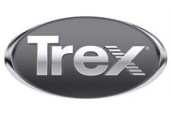Civic Pride
While the most recent round of military base closings, as well as the ongoing housing privatization efforts, will continue to provide opportunities for builders and suppliers in almost every state at least through this decade, local governments offer a fair share of action as well.
Though housing is only a blip within the $275 billion in total value of public construction put in place every year, thus excluding the bulk of a dealer’s customer base from taking a slice of that pie, dealers have found some niches in supplying materials to projects including public safety facilities, schools, and office buildings.
Most of those projects are fueled by state and local tax dollars, as opposed to federal funds; in fact, nearly 95% of public spending on construction (about $260 billion annually) is grounded at that level, making such projects more accessible to local contractors and dealers.
And, like the military’s efforts, the contracts are increasingly managed like private ventures. “It’s essentially the same process as with any other account,” says Bill Bucher, president of Square Deal Lumber in Glasgow, Ky., a four-location dealer that has supplied stock, custom, and special order millwork to several new or remodeled municipal and county courthouse projects funded by state dollars. “We even got paid directly by the [public] agency,” instead of through the general (or prime) contractor.
That’s a welcome switch, lowering one of the key hurdles to working in the public realm. “Traditionally, public agencies take longer to pay,” says Leslie Shiner, a senior consultant for Intuit Construction Business Solutions in Santa Rosa, Calif. “In many cases, you have to fund your portion of the job [while waiting to get paid] or ask for extended terms up the supply chain to compensate.”
Not only might it take an agency 90 days or longer to cut a check, but that payment typically goes to the prime (or lead) contractor, who then doles it out to his supporting cast. “If you are a subcontractor or supplier, you may be fourth or fifth in line to get paid” from that check, extending the terms even further, she says. “You have to know where you are in the chain.”
Square Deal, however, was among the first in line on the courthouse projects, despite being folded into the winning contract for each job. “We submitted our invoices to the general contractor, but the agency paid us directly from a purchase order system,” says Bucher. “Essentially, it was the same process as with any privately funded job.”
The line was blurred even more by the fact that Bucher wasn’t required to guarantee his millwork prices any longer than he would for any account. He also was able to quote a fair price for the materials and the work similar to other light commercial jobs based on a set of plans and specifications initiated by an architect and approved by the state agency managing the funds.
“We did enough of these projects that eventually we were brought in to consult on the specifications [at the design stage],” says Bucher, enabling him to refine his numbers even more and offer cost- or time-saving suggestions on the project. “They relied on our capabilities and experience to stay within budget.”
Though the courthouse work has tailed off during the last year as the statewide project neared completion, Square Deal still manages to secure some government work. The dealer supplies lumber and building materials (increasingly, climate-resistant composite wood products) for small-scale building projects, such as restroom facilities, information kiosks, and staging platforms, in nearby Mammoth Caves National Park. “The Park Service doesn’t require anything more from us than any other customer,” says Bucher.



